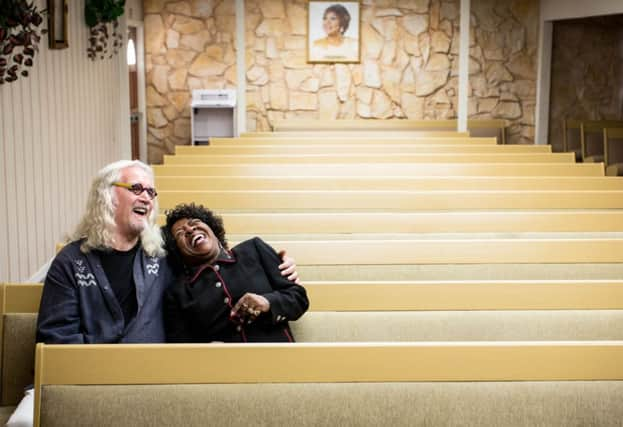Being prepared for end of the road show


Billy Connolly’s Big Send Off programme on television has brought death, funerals and memorial practices into our Wednesday night living rooms.
The Scottish comedian’s touching asides about his own condition also hint at the equally important issue of how we are cared for as we reach the last stages of life.
Advertisement
Hide AdAdvertisement
Hide AdIn Scotland, as in many other countries, how we look after people in their final weeks and months has become a matter of pressing public, professional and policy concern. An ageing population means that the demand for end-of-life care is set to increase significantly, just at a time when we may have fewer resources to support it.
All of us must die at some stage, but the manner of our dying is subject to huge variation – and increasingly to public discussion.
Cicely Saunders, founder of the modern hospice movement, once noted that care for the dying is a measure of our civilisation as a society. So care at the end of life should be a matter for the whole of Scottish society to consider. Palliative care has a distinguished history in Scotland and is well-developed here. But there is growing recognition that palliative care alone is not the complete solution.
New challenges have emerged associated with advanced age, frailty, dementia, co-morbidities [those conditions that worsen in the last stages of life], and the complexity of providing dignity-enhancing care in the face of restricted resources.
Some argue for palliative care principles to be more effectively embedded in the wider health and social care system – and address their energies to quality improvement within the healthcare system.
Others place more emphasis on “assets” based approaches and the need for local communities and social enterprises to make a response to local end-of-life needs.
There are arguments for extending choice at the end of life through the legalisation of assisted dying. This year the Scottish Parliament will debate a Bill to make provision for an Act of the Scottish Parliament to make it lawful, in certain circumstances, to assist another to take their own life. At the moment, there is no real unanimity about how these various claims can be reconciled. Overall, the provision of appropriate end-of-life interventions is compromised by conflicting claims and value positions – and often by the quality of available research findings.
We know how inequalities in access to care persist at the end of life.
Advertisement
Hide AdAdvertisement
Hide AdThe nature of our illness, where we live, our ethnicity, and how old we are can all impact upon the circumstances of our care and our quality of life as death approaches.
We also have some knowledge about how good quality end-of-life care can be achieved, as well as approaches that have not delivered their intended results.
All of this presents the opportunity for a transformative approach to end-of-life issues in Scotland.
What, we might then ask, will be the character of end-of-life care in tomorrow’s Scotland?
Few countries have yet adopted a national strategy for end-of-life care. Some have been too limited in confining responsibility to health mandarins and have overlooked the synergies to be found through wider cross-governmental engagement. Some have given too much prominence to palliative care at the expense of other inputs. We can learn from these examples as well as from those countries currently considering their options.
I suggest two key steps.
First, we set in train a process to build a national response to end-of-life care issues in Scotland. This will need investment in strong leadership, an evidence-based approach, and a commitment to inclusivity and innovation – based on the best international standards and benchmarks.
Second, we build on that process to launch a ten-year Strategy for End of Life Care in Scotland with ambitious goals and a commitment to delivering high quality, equitable and dignity-enhancing support to all citizens at the end of life – regardless of age, gender, geography, or diagnosis.
At the moment our discussions in Scotland on end-of-life issues are too timid. We need the boldness of Billy Connolly in addressing the subject.
Advertisement
Hide AdAdvertisement
Hide AdAs the independence referendum draws near we have a wonderful opportunity for the full engagement of all elements in Scottish society around an issue which none of us will be able to avoid.
This needs cross-party, cross-governmental support, involvement from faith communities, non-governmental organisations, professionals and academics, and engagement from business.
In short: every one of us.
• Professor David Clark is director of interdisciplinary studies at the Dumfries campus of the University of Glasgow.
SEE ALSO